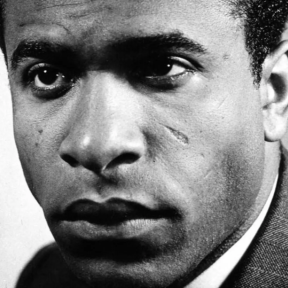
Politics
The study of politics draws from the knowledge and principles of political science, sociology, history, economics, neuroscience, and other related fields to examine and understand the political behavior that ultimately informs government policy and leadership. Exploring these relationships can help us understand how we act collectively, govern ourselves, make political decisions, resolve conflict, and use and abuse power, all of which reflect our deepest fears at least as much as our aspirations and ideals.
The personalities, ethics, behavior, motives, judgments, integrity, and management styles of political leaders must also be addressed. More than ever, social psychologists and others have a lot to say about the divisive nature of partisan politics and what can be done to allow diverse voices to be heard and reconcile the strong differences of opinion that can impede progress and pull a nation apart.
Contents

Psychology pervades the political sphere, from the techniques candidates use to communicate with voters, to persuasion and negotiation in office, to protests organized by the general public.
Public opinion plays a strong and influential role in policy setting and decision-making in government. Though not always accurate, non-biased public opinion polls and surveys are one way for politicians and public officials to gauge the public’s feelings about any topic. Constituents can call or write to their elected officials at any time to have their voices heard. Special interest groups representing the opinions of large groups of people also have the ear of public officials. At the same time, political leaders often try to shape public opinion on issues and initiatives that concern them the most.
The job of leading an organization, military unit, or nation, and doing so effectively, is immensely complex. One trait consistently associated with obtaining leadership positions and leader effectiveness is extraversion. Being bold and assertive, as well as intelligent and empathic, can also be advantageous. And leadership potential can be cultivated; research suggests that leadership may be one-third born and two-thirds made.
Compelling political messaging often hinges on how voters feel rather than what they think. Effective messaging relies on a few reliable principles: Politicians should aim to evoke the voter’s core values, appeal to their emotions (both positive and negative), and tell a powerful story rather than rely on facts and policy information.
Leaders often aim to create widespread change to address challenges such as traffic accidents or climate change, for example. But it’s difficult to identify what really motivates people to change their ways. Economic incentives alone often fail to meet community goals, but research suggests that incorporating psychological elements, such as the desire to adhere to new social norms, can lead to success.
Research reveals that a few techniques can foster successful negotiations. Each party should aim to focus on their interests rather than positions, and on the problem at hand rather than on specific people. It’s also helpful to explore a variety of options and use objective criteria to measure success. These guidelines form an approach called principled negotiation, in which participants view themselves as collaborative problem-solvers selecting a solution from several mutually beneficial options.
Research by acclaimed psychologist Robert Cialdini has identified seven key principles of persuasion:
1. Authority (persuasion due to information from a credible expert)
2. Likeability (persuasion due to information from a trusted friend)
3. Consistency (persuasion due to information that conforms to prior beliefs)
4. Consensus (persuasion due to popularity)
5. Scarcity (persuasion due to the perception of a limited supply)
6. Reciprocity (persuasion due to the feeling of owing someone)
7. Unity (persuasion due to a shared social identity)
We are living in an era of hyper-partisanship. Many factors have fueled this division, including individual cognitive biases, such as black and white thinking, confirmation bias, and implicit bias, as well as larger shifts such as siloed information ecosystems and pervasive misinformation. One step to help combat political polarization is to expose oneself to a variety of viewpoints and cultivate cognitive flexibility.
People can engage in the democratic process in many different ways, from registering new voters to advocating for specific causes. Protests have been a vehicle for change throughout history, but which forms of protest actually work? Protests that are nonviolent and nonnormative (outside the bounds of normal behavior)—such as boycotting, striking, sit-ins, or refusing to pay fines or taxes—often create pressure for change while maintaining broad public support.

Which personality traits propel the desire for power? How does the constitution assess mental competency? Should the public consider mental health when selecting their leaders? People have always explored these questions, but the election of President Donald Trump sparked new interest and vigorous debate.
Voters prefer politicians who are relatively more extraverted, assertive, open, honest, emotionally stable, and somewhat more disagreeable than the average person; these traits are also associated with political ambition, leadership, and media visibility. While ideology underlies political parties, personality underlies political candidates, and voters often choose politicians who embody their own personality traits but have stronger leadership qualities.
People high in dark personality traits such as narcissism, psychopathy, and Machiavellianism are often drawn to positions of power. The desire for authority, attention, and wealth often propels them to attain power in brazen and ruthless ways. These traits can increase the impulse to gain power, instill a sense of superiority, and prevent them from accepting negative information about themselves or their leadership. Pathocracy is a term used to describe a government run by leaders with personality disorders.
Leaders with dark personalities can be damaging in the long run, so why do voters choose them in the first place? One reason is that narcissists and sociopaths have seductive personalities; they can be charming, confident, and bold, and they exaggerate their accomplishments. Another is that high-conflict personalities attract attention, which the media then spotlights.
These leaders often introduce a powerful narrative that a crisis is imminent and that they are the only one who can avert it. Their behavior also divides the population into warring factions, which weakens opposition.
Television and social media have made politicians increasingly visible, yet they continue to take risks and generate scandals despite the likelihood of being caught. This may be because of personality traits that occur more frequently in politicians than the general population, such as narcissism, risk-taking, the motivation for power, and a false self (developing a political persona).
These traits may render politicians more likely to engage in scandalous behavior, refuse to apologize, make contradictory public statements, and not care about a mismatch between their private identity and their public persona.
At some point, the cognitive competency of the commander in chief is a matter of constitutional as well as medical concern. The 25th Amendment establishes protocols for the transfer of power in the event a president can’t carry out the duties and powers of office. When a president becomes impaired but is unable—or unwilling—to recognize the incapacity, Section 4 is invoked. It allows the vice president and a majority of the cabinet to determine that the vice president should carry out the duties of the presidency until the president regains the ability. It has never been put to use.
The Goldwater Rule is a statement of ethics put forth by the American Psychiatric Association stating that psychiatrists should not speculate or diagnose a public figure whom they have not personally evaluated. The American Psychological Association adopted the rule as well. The Goldwater Rule has been intensely debated, particularly as it pertains to the mental health and governing ability of President Trump.
President Trump has upended conventional beliefs about presidential leadership. Some mental health professionals have spoken out about their interpretation of Donald Trump’s mental health, stating that his behavior aligns with the DSM-5 criteria for narcissistic personality disorder, antisocial personality disorder, and paranoid personality disorder.

The intensity, division, and vitriol of politics today can evoke powerful emotions. Some may feel occasional frustration at political figures and processes, while others may struggle with stress, anxiety, or depression. The topic can also strain or even break important relationships. But certain strategies can help people communicate about political differences, draw boundaries when appropriate, manage their emotions, and boost their well-being.
For many people, politics now increasingly fuels feelings of anxiety, fear, and distress. To address these emotions, people can take action politically—calling a congressional representative, going to a protest, or advocating for change—to gain a sense of control. They can reach out to loved ones and find communities that share their values and goals. Coping skills such as exercise, journaling, and recalling past experiences of resilience can also help curb political anxiety.
Political disagreements can be messy, but there are healthy ways to navigate politically divided friendships. Think about your goal for the relationship, and devote more time to discussing core values with those who you want to sustain a deep relationship with.
Instead of attempting to change the person’s mind, focus on understanding why they think the way they do. Ask open-ended questions like “tell me more” and avoid accusations and harsh tones. Allow emotions, not just facts, to be a valid part of the conversation. Even if you disagree, show that you understand. After multiple conversations, it’s okay if you decide to draw boundaries around particular topics.
Many people feel passionately about converting their loved ones to their perspective. Yet logic and reasoning are rarely effective; a better approach is to express openness and curiosity. Learning why a family member holds particular beliefs can actually increase intimacy.
In a family context, it’s particularly important to take past history and relationship dynamics into account. If political conversations have gone poorly in the past, it may be best for members of the family to agree to disagree, and then avoid the topic altogether.














